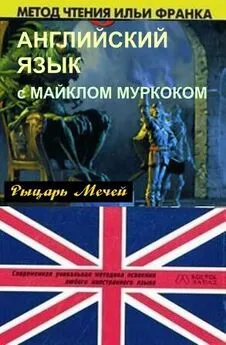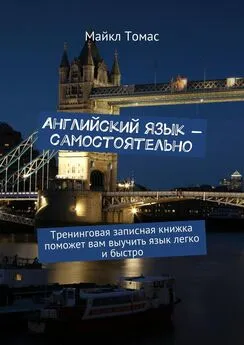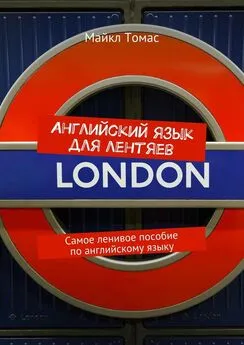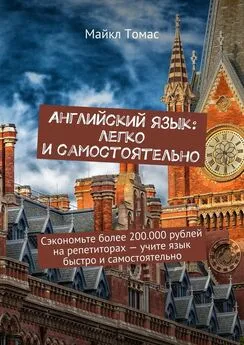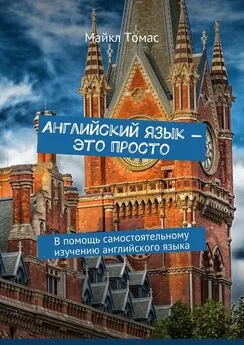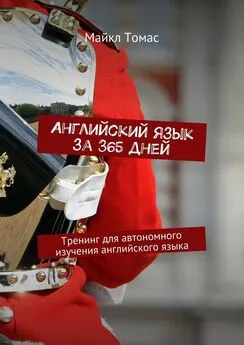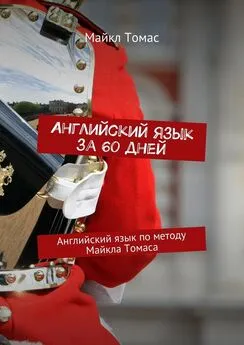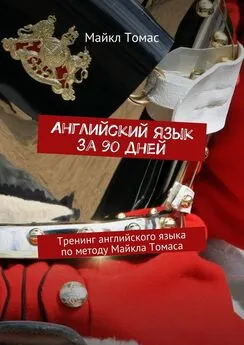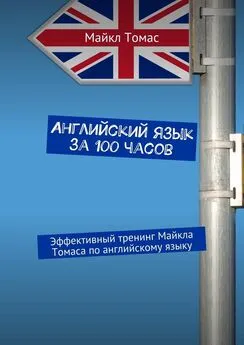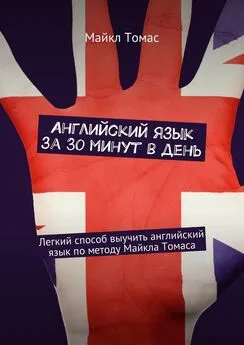Майкл Муркок - Английский язык с М. Муркоком
- Название:Английский язык с М. Муркоком
- Автор:
- Жанр:
- Издательство:неизвестно
- Год:неизвестен
- ISBN:нет данных
- Рейтинг:
- Избранное:Добавить в избранное
-
Отзывы:
-
Ваша оценка:
Майкл Муркок - Английский язык с М. Муркоком краткое содержание
В книге предлагается произведение "Рыцарь Мечей" Майкла Муркока, адаптированные (без упрощения текста оригинала) по методу Ильи Франка. Уникальность метода заключается в том, что запоминание слов и выражений происходит за счет их повторяемости, без заучивания и необходимости использовать словарь. Пособие способствует эффективному освоению языка, может служить дополнением к учебной программе. Предназначено для студентов, для изучающих английский язык самостоятельно, а также для всех интересующихся английской культурой.
Метод чтения Ильи Франка
Английский язык с М. Муркоком - читать онлайн бесплатно полную версию (весь текст целиком)
Интервал:
Закладка:
`Aye (да), promised Corum (ответил Корум; to promise — обещать; уверять ). `And one that will avenge his people (и один = этот /оставшийся/ отомстит за свой народ) if he is given the opportunity (если ему дадут возможность = при первом же удобном случае; opportunity — благоприятный случай, шанс, возможность ).
sorcery [ˈsɔs (ə) rɪ] loathe [ləuð] superior [s (j) u:ˈpɪərɪə] desire [dɪˈzaɪə]
`Why have you destroyed all the Vadhagh? said Corum quietly. His mouth moved painfully. `Why, Earl of Krae?
Glandyth looked at him as if in surprise and he was slow to reply.
`You should know. We hate your sorcery. We loathe your superior airs. We desire your lands and those goods of yours which are of use to us. So we kill you. He grinned. `Besides, we have not destroyed all the Vadhagh. Not yet. One left.
`Aye, promised Corum. `And one that will avenge his people if he is given the opportunity.
`No (нет). Glandyth put his hands on his hips (Гландит подбоченился; to put one`s hands on one`s hips — положить руки на пояс; hip — бедро ). `He will not be (ему не дадут /такой возможности/).
`You say you hate our sorcery (ты говоришь, /что/ ненавидишь наше колдовство). But we have no sorcery (но у нас нет = мы не занимаемся колдовством). Just a little knowledge, a little second sight (всего лишь немного знаний, /немного/ второго зрения) …
`Ha! We have seen your castles and the evil contraptions they contain (мы видели ваши замки и зловещие штуковины в них; contraption — /новое/ хитроумное изобретение, штуковина; to contain — содержать в себе, вмещать ). We saw that one, back there (мы видели тот /замок/, вон там) — the one we took a couple of nights ago (тот, /что/ мы захватили пару ночей назад). Full of sorcery (/там/ полно колдовства)!
Corum wetted his lips (Корум облизал губы; to wet — смачивать, увлажнять, обливать ).
knowledge [ˈnɔlɪʤ] contraption [kənˈtræpʃ (ə) n] couple [ˈkʌp (ə) l]
`No. Glandyth put his hands on his hips. `He will not be.
`You say you hate our sorcery. But we have no sorcery. Just a little knowledge, a little second sight…
`Ha! We have seen your castles and the evil contraptions they contain. We saw that one, back there — the one we took a couple of nights ago. Full of sorcery!
Corum wetted his lips.
`Yet even if we did have such sorcery (даже если бы мы действительно обладали подобным колдовством), that would be no reason for destroying us (это не было бы причиной = это не повод, чтобы уничтожать нас). We have offered you no harm (мы не причиняли вам никакого зла/вреда; to offer — предлагать; пытаться ). We have let you come to our land without resisting you (мы позволили вам прийти на наши земли без сопротивления /вам/). I think you hate us because you hate something in yourselves (думаю, вы ненавидите нас, потому что вы ненавидите нечто в себе /самих/). You are — unfinished — creatures (вы — недоделанные = неполноценные существа; unfinished — незавершенный; необработанный ).
`I know (знаю). You call us half-beasts (вы называете нас полуживотными). I care not what you think now, Vadhagh (мне плевать, что ты сейчас думаешь, вадаг; to care — заботиться; беспокоиться ). Not now that your race is gone (теперь, когда твой народ погиб; gone — умерший, ушедший /из жизни/; потерянный; разоренный ). He spat on the ground and waved his hand at the youth (он плюнул на землю и подал знак рукой юноше; to spit; to wave — махать, подавать сигнал /рукой, платком и т. д. / ). `Let him go (отпусти его; to let — позволять, разрешать ).
The youth sprang back (юноша отпрыгнул назад).
Corum swayed, but did not fall (Корум качнулся, но не упал). He continued to stare in contempt at Glandyth-a-Krae (он продолжал презрительно: «в презрении» смотреть на Гландита-а-Краэ; to stare — пристально глядеть, уставиться ).
resisting [rɪˈzɪstɪŋ] youth [juƟ] swayed [sweɪd] contempt [kənˈtempt]
`Yet even if we did have such sorcery, that would be no reason for destroying us. We have offered you no harm. We have let you come to our land without resisting you. I think you hate us because you hate something in yourselves. You are — unfinished — creatures.
`I know. You call us half-beasts. I care not what you think now, Vadhagh. Not now that your race is gone. He spat on the ground and waved his hand at the youth. `Let him go.
The youth sprang back.
Corum swayed, but did not fall. He continued to stare in contempt at Glandyth-a-Krae.
`You and your race are insane, Earl (ты и твой народ — безумны, граф). You are like a canker (вы — словно /моровая/ язва; canker — язва; червоточина ). You are a sickness suffered by this world (вы — болезнь, /от которой/ страдает этот мир).
Earl Glandyth spat again (Гландит сплюнул снова). This time he spat straight into Corum's face (на этот раз он плюнул прямо в лицо Коруму).
`I told you — I know what the Vadhagh think of us (я сказал тебе — я знаю, что вадаги думают о нас). I know what the Nhadragh thought before we made them our hunting dogs (знаю, что надраги думали, прежде чем мы сделали их = превратили в своих гончих псов; hunting dog — гончий пес, охотничья собака ). It was your pride that has destroyed you, Vadhagh (/именно/ ваша собственная гордость уничтожила вас, вадаг). The Nhadragh learned to do away with pride (надраги научились избавляться от гордыни; to do away with — избавиться от, покончить с ) and so some of them were spared (и некоторые из них уцелели; to spare — беречь, экономить; щадить ). They accepted us as their masters (они приняли/признали нас в качестве своих хозяев). But you Vadhagh could not (но вы, вадаги, не смогли /сделать этого/): When we came to your castles, you ignored us (когда мы приходили к вашим замкам, вы не замечали нас). When we demanded tribute, you said nothing (когда мы потребовали дани, вы промолчали: «сказали ничего»). When we told you that you served us now (когда мы сказали вам, что вы служите нам теперь), you pretended you did not understand us (вы претворились, /что/ не понимаете нас). So we set out to punish you (поэтому мы решили наказать вас; to set out — отправляться, выезжать; намереваться ). And you would not resist (и вы не сопротивлялись). We tortured you and, in your pride, you would not give us an oath (мы пытали вас, и, в своей гордыне, вы не принесли нам клятву) that you would be our slaves, as the Nhadragh did (что будете нашими рабами, как сделали надраги). We lost patience, Vadhagh (мы потеряли терпение, вадаг; to lose ). We decided that you were not fit to live in the same land as the great King Lyr-a-Brode (мы решили, что вам нельзя жить в той же земле, что и великий король Лир-а-Брод; fit — подходящий, /при/годный ), for you would not admit to being his subjects (потому что вы бы не согласились быть его подданными; to admit — допускать; принимать, соглашаться; subject — субъект, человек; подданный, гражданин ). That is why we set out to slay you all (вот почему мы решили убить вас всех). You earned this doom (вы заслужили эту судьбу; to earn — зарабатывать; заслуживать ).
canker [ˈkæŋkə] tribute [ˈtrɪbju:t] patience [ˈpeɪʃ (ə) ns] earned [ə: nd]
`You and your race are insane, Earl. You are like a canker. You are a sickness suffered by this world.
Earl Glandyth spat again. This time he spat straight into Corum's face.
`I told you — I know what the Vadhagh think of us. I know what the Nhadragh thought before we made them our hunting dogs. It was your pride that has destroyed you, Vadhagh. The Nhadragh learned to do away with pride and so some of them were spared. They accepted us as their masters. But you Vadhagh could not: When we came to your castles, you ignored us. When we demanded tribute, you said nothing. When we told you that you served us now, you pretended you did not understand us. So we set out to punish you. And you would not resist. We tortured you and, in your pride, you would not give us an oath that you would be our slaves, as the Nhadragh did. We lost patience, Vadhagh. We decided that you were not fit to live in the same land as the great King Lyr-a-Brode, for you would not admit to being his subjects. That is why we set out to slay you all. You earned this doom.
Corum looked at the ground (Корум посмотрел на землю = опустил голову). So it was complacency that had brought down the Vadhagh race (значит, это благодушие/самодовольство погубило вадагский народ; to bring down — свалить; сломать ).
He lifted his head again and stared back at Glandyth (он снова поднял голову и посмотрел на Гландита; back — назад, обратно; указывает на ответное действие; ср. to talk back — возражать ).
`I hope, however (я надеюсь, тем не менее), said Corum, `that I will be able to show you (что смогу показать вам) that the last of the Vadhagh can behave in a different way (что последний из вадагов может вести себя по-другому; to behave — вести себя, поступать; держаться ).
Glandyth shrugged and turned to address his men (Гландит пожал /плечами/ и повернулся, чтобы обратиться к своим людям).
Читать дальшеИнтервал:
Закладка:
